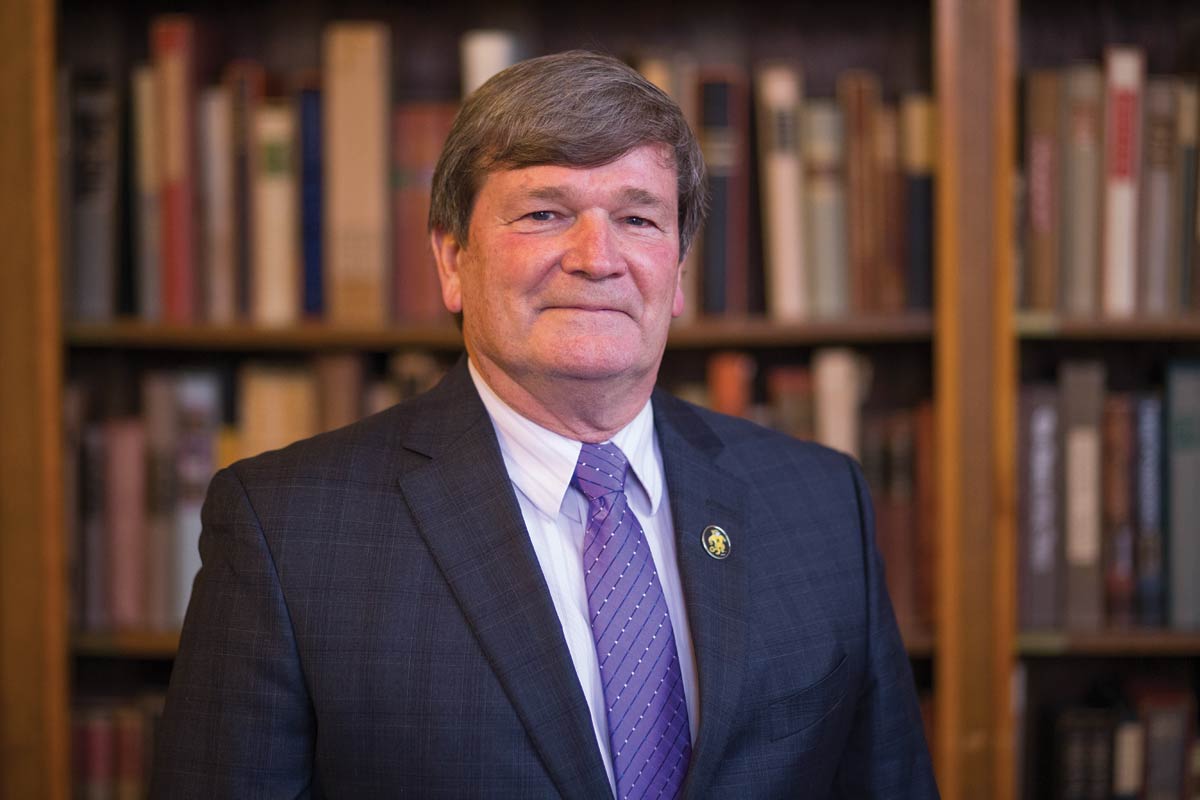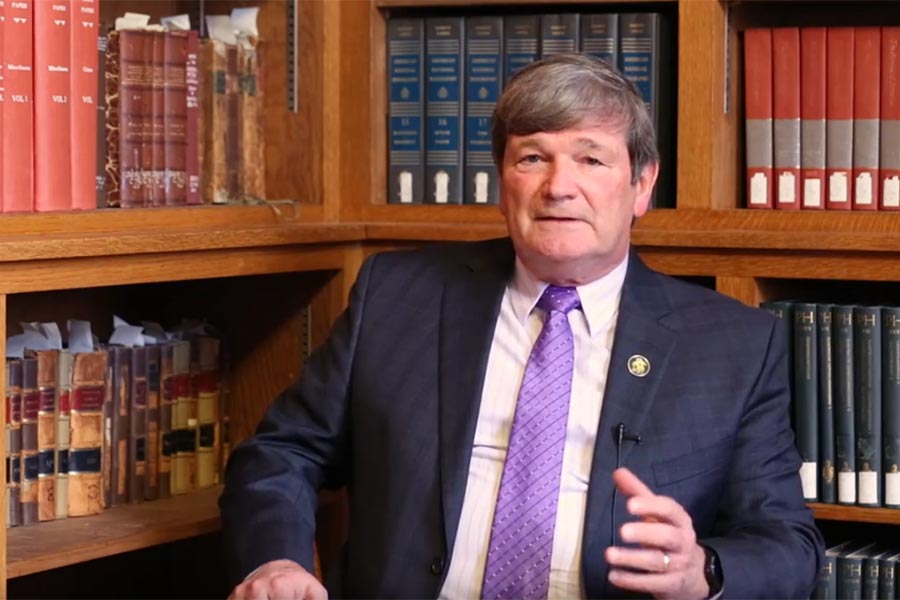
“I had never seen Knox,” remembers Mark McIntosh. “I got on a train in Amarillo, Texas, and rode for 16 hours and got off in Galesburg. So that was that was my introduction to Knox and to a whole new view of the world.”
When he arrived, McIntosh wasn’t sure whether he’d go into medicine or research—just that he wanted to make a career in the sciences. As it turns out, the career that followed has elements of both. After earning a Ph.D. in microbiology at The University of Texas at Austin, and spending three years as a post-doctoral fellow in biochemistry at University of California, Berkeley, McIntosh, has spent his entire career at the University of Missouri and the University of Missouri School of Medicine, becoming a professor in their molecular biology and immunology program, where his research has focused on bacterial pathogenesis—the process by which bacteria infect and cause disease in organisms—and new strategies for diagnosing and treating those infections. His research has won funding from the National Science Foundation, the National Institutes of Health, the USDA, and the Cystic Fibrosis Association of Missouri, among others.
He became the first director of University of Missouri’s DNA Core Facility, and has been director of all of the university’s research core facilities since 2004. He has served as director of graduate studies and as chair of the Department of Molecular Microbiology and Immunology. In 2017, he was named vice president for research and economic development for the entire University of Missouri system, where he helps to bring the university’s scientific breakthroughs from the lab bench to the bedside.
How did a Knox education prepare you for success as a scientist?
What really prepared me for my career were all the non-science courses that I took. Knox taught me how to write and how to think—a much different approach than other schools. I've been at three major universities that are very focused on the sciences. Even if you’re focused on a career in science or a career in medicine, success in science these days is not about solving one very small piece of the puzzle but how to put that piece of the puzzle into the bigger picture, how to get your science out to the community as a whole. I took a creative writing course at Knox with Robin Metz that did me a lot of good in the long run, because a lot of my work is in fact about the communication of science.
How would you summarize your Knox experience?
It opened up the world for me. I grew up in West Texas, where all anybody thought about in high school was football. I got here because my high school football coach knew the head football coach at Knox. (Eds. note: McIntosh played both football and baseball for Knox for four years.) My wife and I met here; we’ve been together for 50 years now. We sent four sons here to go to school. Knox has meant the world to us.
